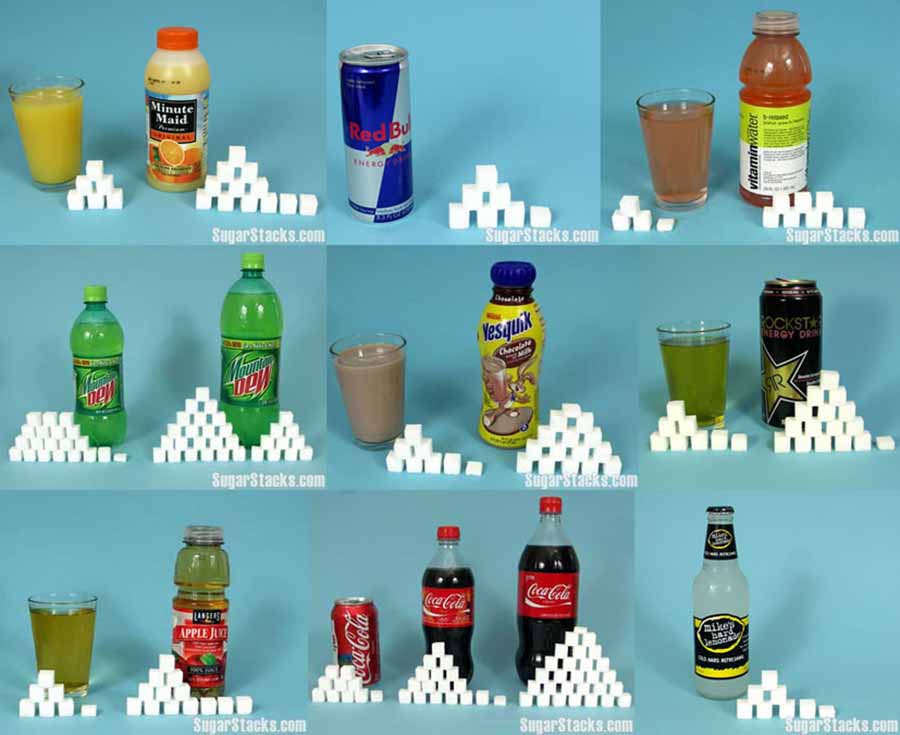
Increasing the health of your family can be simple. Sometimes we get so bombarded with so many sensational media stories that take no action because we have grown so skeptical.
While skepticism is a good thing, there are studies that are “cut and dried”.
As the evidence against sugary drinks continues to mount I would urge you to eliminate these from your diet.
Usage of sugary beverages may result in an estimated 184,000 adult deaths each year worldwide, according to research released today in the journal Circulation and formerly provided as an abstract at the American Heart Association Council on Epidemiology and Prevention in 2013.
“Many nations in the world have a considerable number of deaths occurring from a single dietary factor, sugar-sweetened drinks.
It must be an international concern to substantially decrease or remove sugar-sweetened beverages from the diet plan,” stated Dariush Mozaffarian, M.D., Dr.P.H., senior author of the research study and dean of the Friedman School of Nutrition Science & Policy at Tufts University in Boston.
In the first detailed international report on the effect of sugar-sweetened beverages, scientists approximated deaths and specials needs from diabetes, heart problem, and cancers in 2010.
In this analysis, sugar sweetened beverages were defined as any sugar-sweetened sodas, fruit beverages, sports/energy drinks, sweetened iced teas, or homemade sweet beverages such as frescas, that contained at least 50 kcal per 8oz serving. One Hundred Percent fruit juice was left out.
Quotes of usage were made from 62 nutritional surveys including 611,971 people performed in between 1980 and 2010 across 51 nations, in addition to information on nationwide availability of sugar in 187 nations and other info. This enabled capture of geographical, gender and age variation in consumption levels of sugar-sweetened beverages in different populations.
Based on meta-analyses of other published proof on health damages of sugar-sweetened beverages, the detectives calculated the direct influence on diabetes and the obesity-related effects on heart disease, diabetes and cancer.
In 2010, the scientists approximate that sugar-sweetened beverages consumption may have been responsible for around:
133,000 deaths from diabetes
45,000 deaths from heart disease
6,450 deaths from cancer
“Some population dietary changes, such as increasing fruits and vegetables, can be challenging due to farming, costs, storage, and other complexities.
This is not complicated. There is no health advantage of sugar-sweetened drinks, and the potential effect of decreasing consumption is saving tens of countless deaths each year,” Mozaffarian said.
The effect of sugar-sweetened drinks varied greatly in between populations.
At the extremes, the approximated portion of deaths was less than 1 percent in Japanese over 65 years old, however 30 percent in Mexican grownups below 45.
Of the 20 most populated nations, Mexico had the highest death rate attributable to sugar-sweetened drinks with an estimated 405 deaths per million grownups (24,000 total deaths) and the U.S. ranked 2nd with an estimated 125 deaths per million grownups (25,000 overall deaths).
About 76 percent of the approximated sugar-sweetened beverage-related deaths happened in low- or middle-income countries.
In countries of the Caribbean and Latin America, such as Mexico, homemade sweet drinks (e.g. frescas) are popular and eaten in addition to commercially prepared sugar-sweetened beverages.
“Among the 20 countries with the highest estimated sugar-sweetened beverage-related deaths, at least 8 remained in Latin America and the Caribbean, reflecting the high intakes because area of the world,” stated Gitanjali Singh, Ph.D., lead author of the research study and a research study assistant teacher at the Friedman School.
Generally, in more youthful grownups, the percent of chronic disease credited to sugar-sweetened drinks was higher than the percent in older adults.
“The health effect of sugar-sweetened beverage consumption on the young is essential because more youthful adults form a big sector of the workforce in many nations, so the financial impact of sugar-sweetened beverage-related deaths and disability in this age group can be significant.
It also raises issues about the future. If these young people continue to consume high levels as they age, the impacts of high usage will certainly be compounded by the effects of aging, resulting in even higher death and disability rates from cardiovascular disease and diabetes than we are seeing now,” Singh said.
Other co-authors are Renata Micha, Ph.D.; Shahab Khatibzadeh, M.D.; Stephen Lim, Ph.D.; and Majid Ezzati, Ph.D. Author disclosures are on the manuscript.
Singh was supported by a training grant from the National Institute of Diabetes and Digestive and Kidney Diseases (DK007703) and a K00/R00 Pathway to Independence Award from the National Heart, Lung and Blood Institute (1K99HL124321). Preliminary data collection for this work was supported by a grant from The Bill & Melinda Gates Foundation to the 2010 Global Burden of Diseases study.
Singh GM, Micha R, Khatibzadek S, Lim S, Ezzati M, and Mozaffarian, D. “Estimated worldwide, local, and national disease problems related to sugar-sweetened beverage usage in 2010.” Circulation. Published online ahead of print 06-29-15. doi:10.1161/ CIRCULATIONAHA.114.010636.
About the Friedman School of Nutrition Science & Policy.
For three decades, the Jean Mayer USDA Human Nutrition Research Center on Aging at Tufts University has studied the relationship between excellent nutrition and health in aging populations. Tufts research scientists deal with federal agencies to develop the USDA Dietary Guidelines, the Dietary Reference Intakes, and other substantial public laws.
The Gerald J. and Dorothy R. Friedman School of Nutrition Science and Policy at Tufts University is the only independent school of nutrition in the United States. The school’s eight degree programs– which concentrate on concerns relating to nutrition and chronic diseases, molecular nutrition, agriculture and sustainability, food security, humanitarian support, public health nutrition, and food policy and economics– are renowned for the application of scientific research study to national and global policy.





No comment yet, add your voice below!